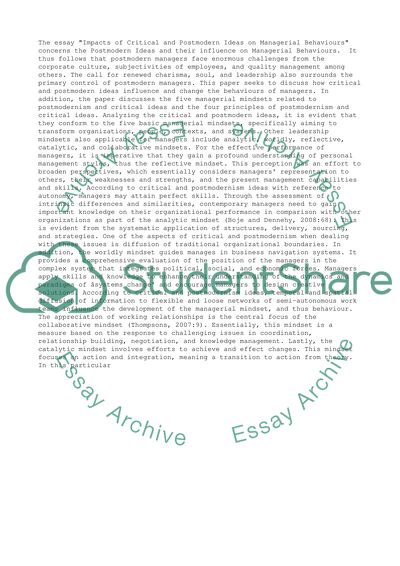Cite this document
(“Impacts of Critical and Postmodern Ideas on Managerial Behaviours Essay”, n.d.)
Retrieved from https://studentshare.org/management/1397653-critical-post-modern-theories-of-organisation
Retrieved from https://studentshare.org/management/1397653-critical-post-modern-theories-of-organisation
(Impacts of Critical and Postmodern Ideas on Managerial Behaviours Essay)
https://studentshare.org/management/1397653-critical-post-modern-theories-of-organisation.
https://studentshare.org/management/1397653-critical-post-modern-theories-of-organisation.
“Impacts of Critical and Postmodern Ideas on Managerial Behaviours Essay”, n.d. https://studentshare.org/management/1397653-critical-post-modern-theories-of-organisation.


